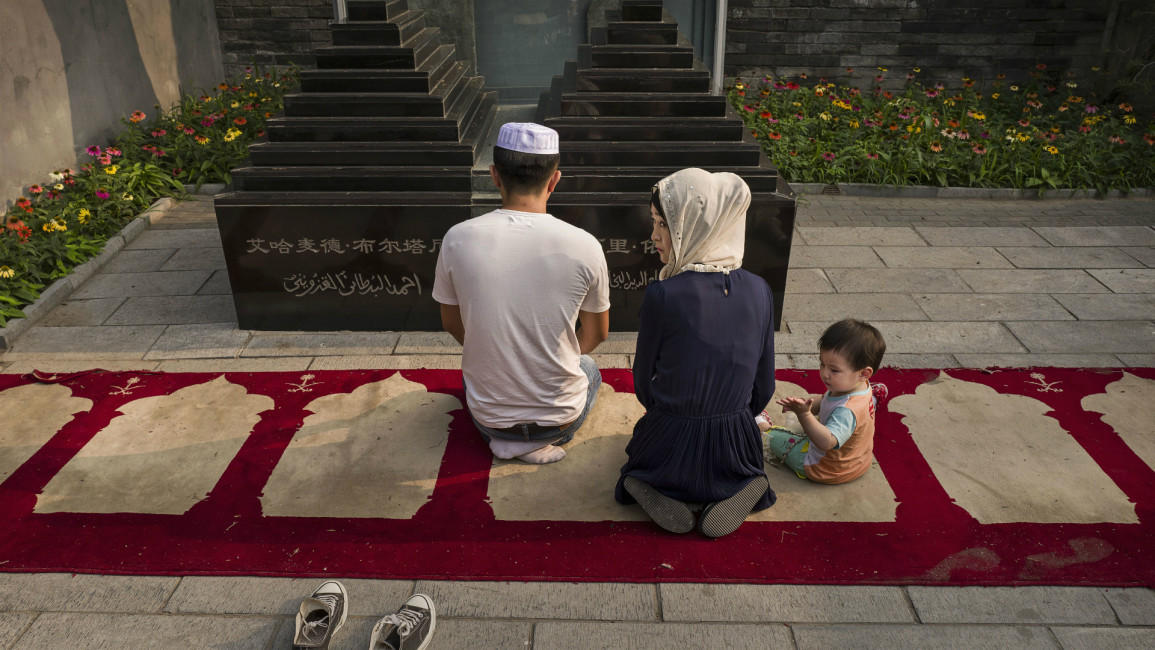
China bans Islamic baby names in Muslim-majority Xinjiang
Parents in China's largest Muslim province will now have to consult a list of banned names before choosing a name for their babies after the ruling Chinese Communist Party issued a ban on Islamic names.
Authorities in the western region of Xinjiang – where around half of China's 23 million Muslims live – released a list of dozens of banned baby names as part of a crackdown on "extremism", according to local media reports.
The banned names include Islam, Quran, Jihad, Hajj, Mecca and Medina – although a full list has not yet been published.
Children carrying those names will be denied social services, healthcare and education, reports said.
The move has been strongly condemned by rights groups.
"This is just the latest in a slew of new regulations restricting religious freedom in the name of countering 'religious extremism'," Sophie Richardson, China director at Human Rights Watch, said in a statement.
"These policies are blatant violations of domestic and international protections on the rights to freedom of belief and expression.
"If the government is serious about bringing stability and harmony to the region as it claims, it should roll back – not double down on – repressive policies."
 |
The banned names include Islam, Quran, Jihad, Hajj, Mecca and Medina... Children carrying those names will be denied social services, healthcare and education |  |
Xinjiang is the homeland of the Uighurs – a traditionally Muslim group, many of whom complain of cultural and religious repression and discrimination.
Last month, authorities in Xinjiang announced a ban on beards and burkas, saying growing "abnormal" facial hair or wearing robes that cover the whole body and face were now prohibited.
They also ban spreading "extremist ideas", refusing to watch or listen to government propaganda on radio or TV, and preventing children from receiving "national education", according to the text of regulations published on a government website.
China has for years blamed exiled Uighur "separatists' for a series of violent attacks in Xinjiang and warned of the potential for militants to link up with global extremist groups.
But many independent experts have doubted the strength of overseas Uighur groups, with some saying China exaggerates the threat to justify tough security measures.
Previously Chinese authorities have restricted granting passports to Uighurs and adopted measures limiting or banning prayer at home, religious education for children, and fasting during Ramadan, which rights groups say has fuelled anger in the region.
Strict controls on the observance of certain Muslim practises, such as growing beards and wearing headscarves have been irregularly enforced in the past, but the new regulations are more sweeping and formal.


![President Pezeshkian has denounced Israel's attacks on Lebanon [Getty]](/sites/default/files/styles/image_684x385/public/2173482924.jpeg?h=a5f2f23a&itok=q3evVtko)



 Follow the Middle East's top stories in English at The New Arab on Google News
Follow the Middle East's top stories in English at The New Arab on Google News


